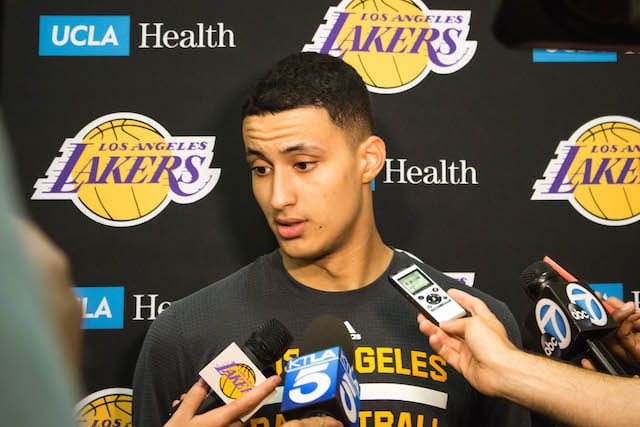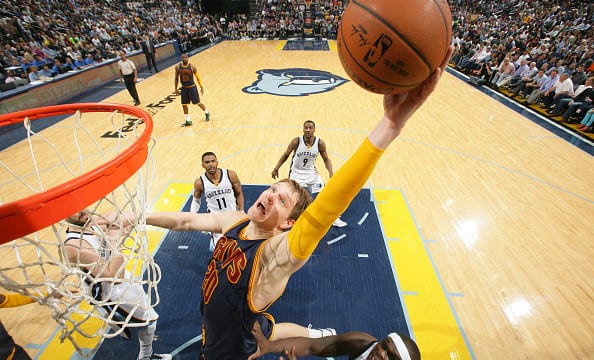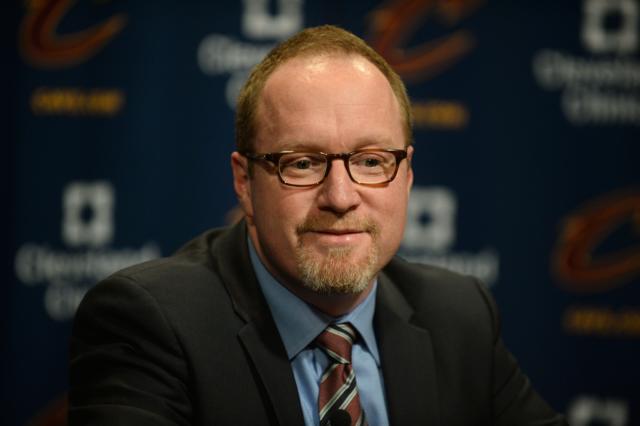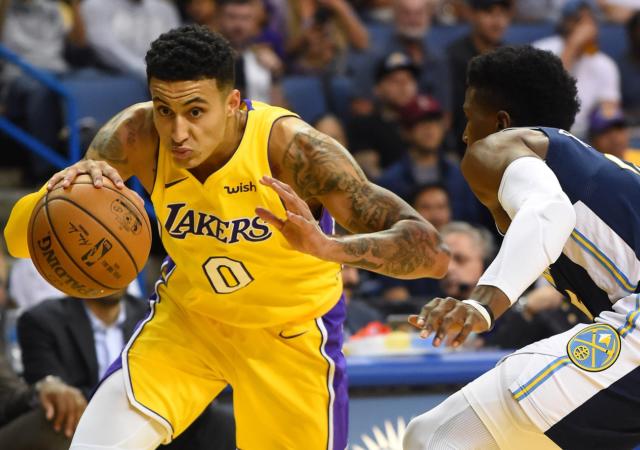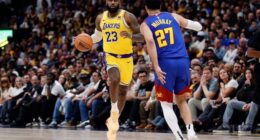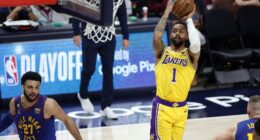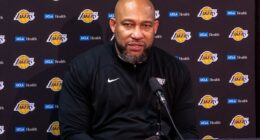This week marks the five-year anniversary of two trades that undoubtedly shook up the NBA landscape. What we didn’t know at the time was that it would spark the NBA’s version of Star Wars and what has come to be known as the Super Team Era. Celtics’ GM Danny Ainge convinced the Sonics and Wolves to trade him superstars for nothing but draft picks, expiring contracts, spare parts, and potential.
At the time of the trades, the NBA had just completed a wacky season in which the Spurs swept the Cavs in the Finals. The league’s best team during the regular season, the 67-15 Mavericks were upset in the first round by the 42-40 Warriors. Five of the league’s six best records belonged to Western Conference teams and the New Jersey Nets, the Eastern Conference’s sixth-seed, finished 41-41. The timing couldn’t have been better for an Eastern Conference team to reinvent it’s roster from top-to-bottom and have a legitimate shot at contending for a title immediately.
Of the nine championships that followed Michael Jordan’s second retirement in 1999, the Eastern Conference was only responsible for two of them, the ’04 Pistons and the ’06 Heat — both of whom were also the beneficiary of lopsided trades involving Rasheed Wallace and Shaquille O’Neal, respectively. You could make a strong case that in the other seven years, in which either the Spurs or the Lakers won the title, the league’s two best teams played each other in the Western Conference Finals. The Lakers and Spurs were a combined 28-9 in those seven NBA Finals and a third of those losses came in the 2005 Finals alone. Take away those three losses and the Eastern Conference averaged one win in each of the other six Finals.
httpvhd://youtu.be/T6TnilbMphA
The other major thing to happen that summer was Kobe Bryant asking the Lakers to trade him. Had Kobe kept his mouth shut there’s a good chance that Garnett could have been a Laker. Here’s what Garnett told Dan Patrick last September (via Boston.com) when he was asked about the possibility of him becoming a Laker that summer:
“I was pretty close, to be honest. What disturbed me about the whole Lakers situation was Kobe and Phil at the time. They were at each other pretty bad, and it was a new situation I didn’t want to get into. It was my choice. There was a lot going on and I didn’t want to be a part of it.”
Bryant never did have his trade request fulfilled. Instead, the Lakers made their own trade six months later when they got Pau Gasol from the Grizzlies for their own collection of draft picks, expiring contracts, spare parts, and potential. The Lakers move wasn’t so much a move to counteract what the Celtics had done or even to appease Bryant. According to Mitch Kupchak, the trade was more about replacing the injured Andrew Bynum. The Lakers were 25-11 the day that Bynum was hurt and in the midst of a six-game winning streak. Following the injury they had lost five of their next eight.
Five days after the Lakers acquired Gasol, the Suns reacted to the trade by making their own splash when they traded for Shaquille O’Neal. The Suns led the Lakers by just a couple games in the standings at the time. In the three games the two teams played prior to their respective trades the Lakers had won the two that Bynum participated in. When the Lakers were able to replace Bynum’s size with Gasol, the Suns felt the need to respond. The Garnett-Pierce-Allen trio would now have competition from Bryant-Gasol-Odom and Nash-Stoudemire-O’Neal.
Three weeks later Mark Cuban plotted a move of his own. Not to be outdone or left out, Cuban reacquired Jason Kidd from the Nets.
As a fan, this was one of the most exciting few weeks I could remember. But in reality was it really in the best interest of the league? What started out as the Celtics trying to give three future Hall of Famers approaching the end of their respective primes the chance to finally win a ring was becoming an epidemic — albeit with differing motives. What we tend to forget is that it takes two or more teams to make a trade. Are the teams who were able to acquire those great players more to blame than their previous teams?
Perhaps no move or moves announced that we were now in the Era of the Super Team more than LeBron James and Chris Bosh taking less money to join the Heat in 2010. James was coming off his third consecutive playoff elimination, including back-to-back seasons in which the Cavs finished with the league’s best regular season record. Bosh’s Raptors had failed to make the playoffs for the fifth time in his seven seasons in Toronto. In hindsight, this shouldn’t have been such a surprise considering this was where the league was heading. Neither Cleveland nor Toronto had a history of being a preferred destination for marquee free agents. With having to decide where they would be playing the next four-to-six years of their career, they chose to join a third superstar in a warm weather city in a where there was no state income tax.
The NBA is beginning to resemble the English Premier League. Since it’s inception in 1992, the 20-team soccer league has had only five different champions. Even though the NBA has a salary cap, 18 of the 30 highest-paid players in the league last year will be playing for seven teams in five different cities next season — Los Angeles, New York, Miami, Boston, and Dallas. Miami is the only one of the five that’s not a top-7 television market.
We probably won’t know if the league’s new CBA will do anything to curb stars from teaming up until the more severe luxury tax penalties go into effect next year. That’s also when we’ll find out which of those small market owners wanted those changes because they wanted a better chance to compete or if they just wanted to take advantage of the opportunity to make more money — either from their own revenue streams or from those paying the luxury tax.
Either way, the times have changed. It’s a different era and we can point to that week in late July of 2007 as to when it all began.


